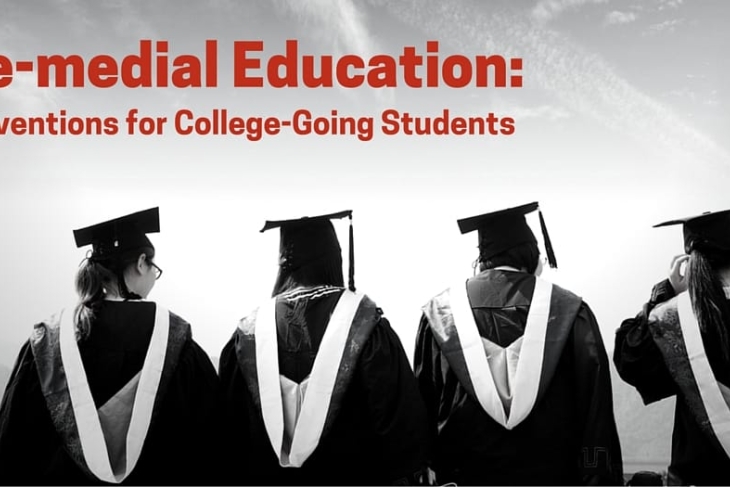When underprepared students enter postsecondary education, they face steep odds; Ninety percent of individuals who start community college in remedial courses leave without any sort of credential. And for low-income students, who make up 70 percent of those taking remedial courses, the odds are truly devastating. Such students have no better chance at a good- paying job—or a middle class lifestyle—than those who don’t try college at all. They leave with nothing but debt and regret.
This bleak prospect faces thousands of students each year across the U.S. With our slipping college graduation rate and declining workforce skills, it weakens our social fabric and threatens our economic future.
How can we address this crisis before students reach campus? What measures need to be put into place to ensure that kids who aspire to college do not graduate high school underprepared?
Some high-school intervention programs, including JFYNetWorks in Boston, have seen great success in reducing remedial requirements for incoming college students. It’s time that policymakers help bring high school-based college readiness programs to scale.
MODERATOR | |
 | Michael J. Petrilli President, Thomas B. Fordham Institute  @MichaelPetrilli @MichaelPetrilli |
PANELISTS | |
 | Gary Kaplan Executive Director, JFYNetWorks  @JFYNetworks @JFYNetworks |
 | Damon Smith Headmaster, Cambridge Rindge and Latin School  @Cambridge_cpsd @Cambridge_cpsd |


